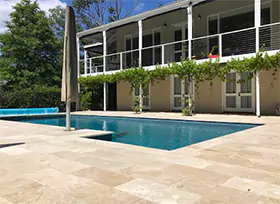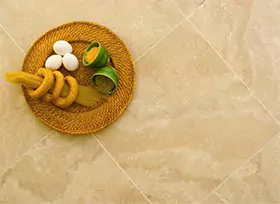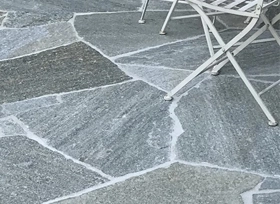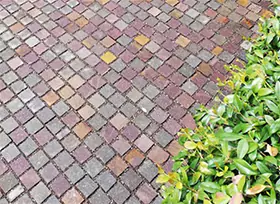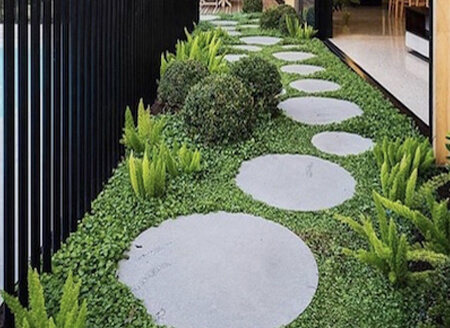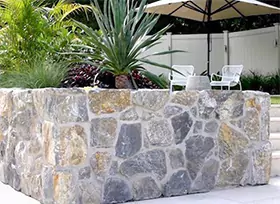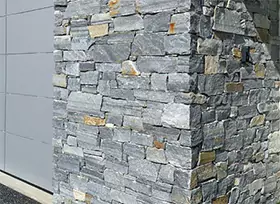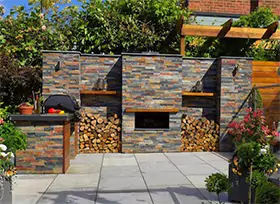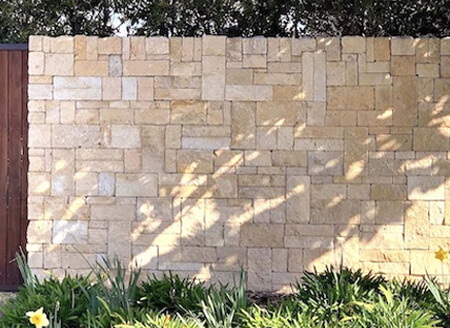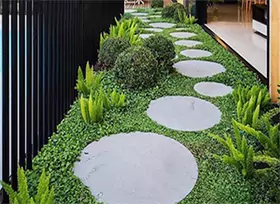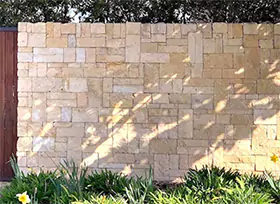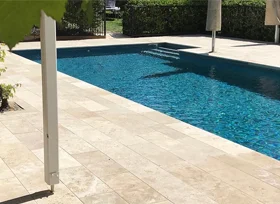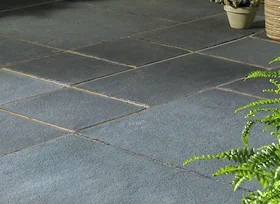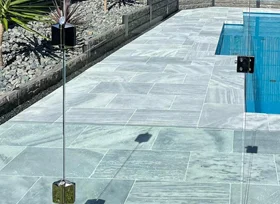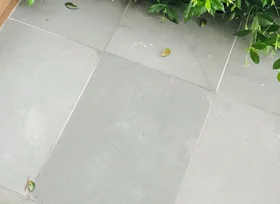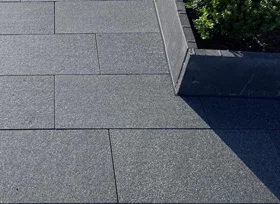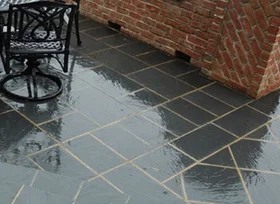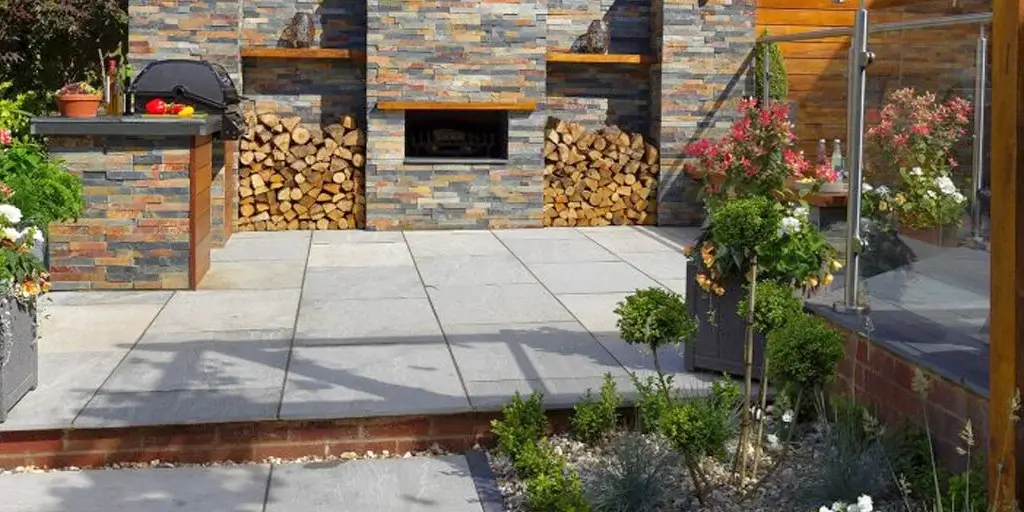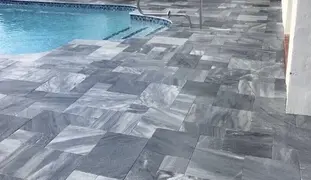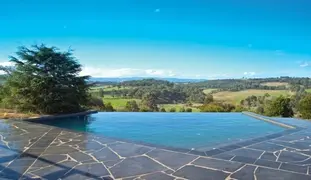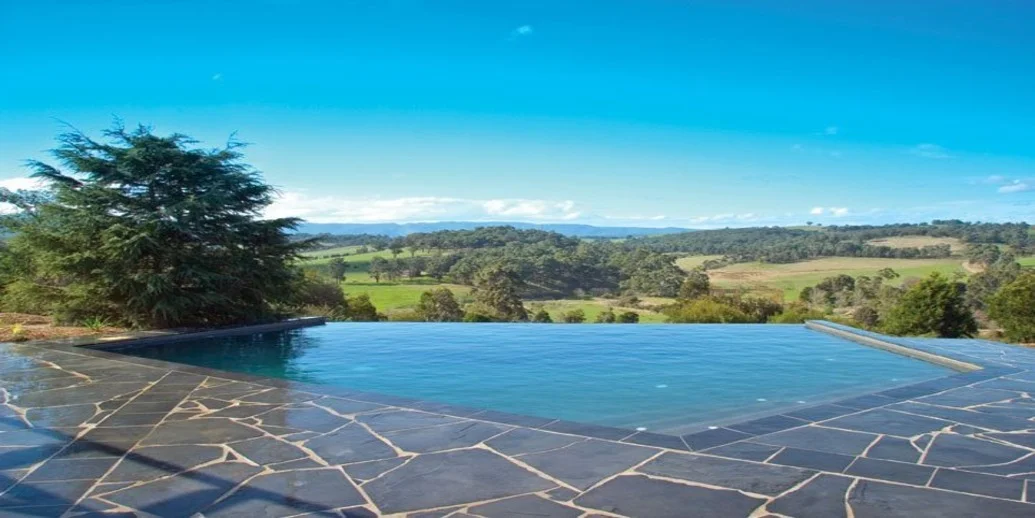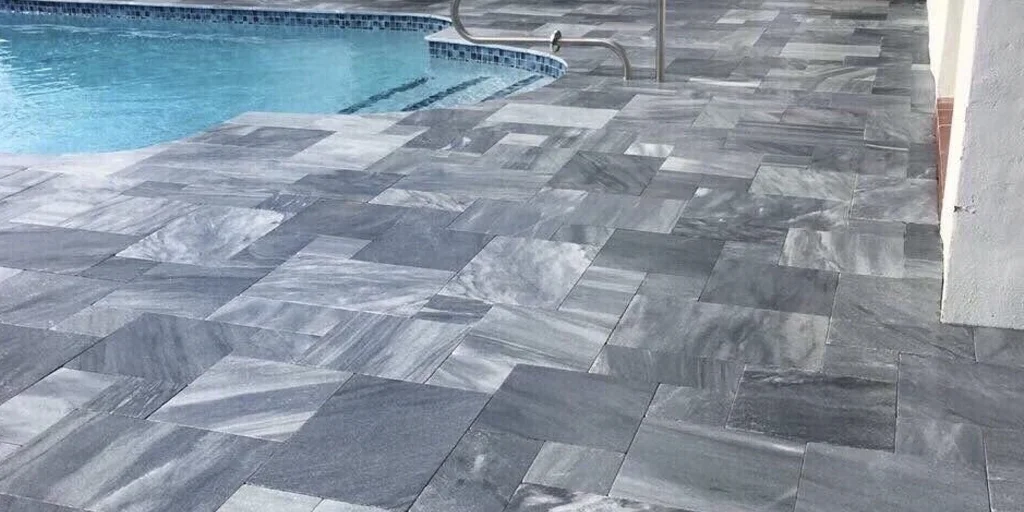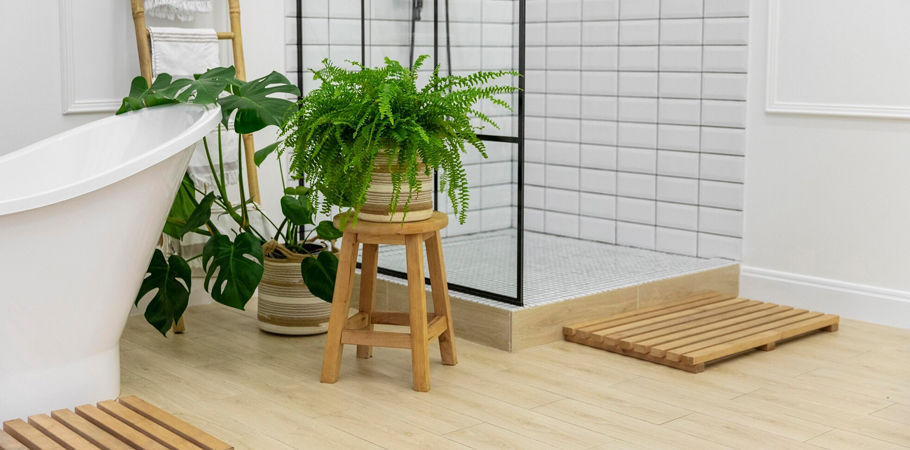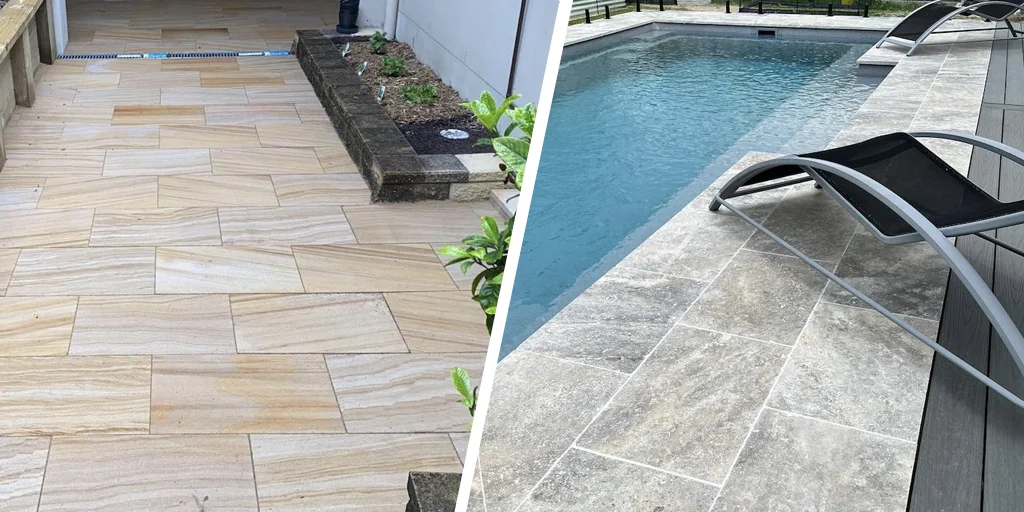Are you looking for a unique style of flooring? Then you’re at the right place!
We bring you one of the most trending natural stones in Australia—Slatestone.
Slate stone’s organic appearance exudes elegance. A few greys and earthy tones are interspersed with shades of blue, purple, amber and gold. It is the perfect option for flooring because of its organic tones. Slate may be used for roof shingles, backsplashes, and walls, but its most popular application is for flooring. The attention is immediately drawn to the rough surface. It is ideal to utilise Slate flooring in the kitchen, bathrooms and outdoor areas. You may be imaginative and install Slate floor tiles in any space.
Slate is also widely accessible. You may establish contact with the exporters and providers of this stone in your area. You have a large selection to pick from, depending on your preferences, the interior design and the home plans.
Let’s know the benefits that they provide.
What are the Benefits of Slate Floor?
There are many benefits of option for Slate flooring, from aesthetic beauty to functionality. We have cumulated the top benefits of opting for Slate floor tiles in Sydney to make your buying decision easy.
Read on!
- Natural Beauty
- Durability
- Eco Friendly
Slate’s variety of hues, striation patterns and surface textures allow you to fully capitalise on its visual attractiveness and blend well with any type of design. These days, Slate floor tiles come in hundreds of colours. With a natural palette ranging from bold colours to subdued, sophisticated blacks and greys, you can easily convey your style.
Slate’s appearance changes depending on where it comes from. For instance, the stones from specific regions of Maine and Pennsylvania are often coloured from deep blue to black; Slate tiles from New York and Vermont, on the other hand, might be coloured green, red, purple or even multicoloured.
Slate floor tiles gained popularity in Sydney, Australia, in the 18th and 19th centuries not as a sophisticated flooring material but rather as the best roofing material available. In this harsh outdoor application, they usually withstood a century or more of weather exposure without experiencing any problems. That demonstrates how durable and strong Slate is. It’s also a reliable indicator of how well flooring in a normal home would withstand exposure to interior environments.
Slate is undisturbed by foot traffic and defies all wear and tear like the resilient natural material that it is, despite its refined, exquisite appearance. Because of its limited porosity, it doesn’t absorb water and becomes nearly impenetrable to liquid stains when sealant is applied. Additionally, it creates a particularly non-slip floor surface for bare feet in the rain. Of course, Slate floor tiles is completely fireproof, just like any other natural stone flooring.
The production process of Slate has a far lower environmental effect than that of other roofing materials. There is little manufacturing and no chemical emissions because the product is made by hand at the quarry. Slate has the lowest embodied energy of all roofing materials when it comes to the sum of energy consumed for waste, transit, and production. It also has the smallest total carbon impact. Slate is more sustainable as it won’t need to be changed as frequently due to its longevity. Furthermore, the material won’t contaminate a landfill when it does stop.
Cons of Slate Floor
There are many pros and cons of this paving stone. We just read about all the benefits, let’s check some of the drawbacks of this flooring.
- Challenging To Install- The cutting of Slate floor tiles requires specialised tools, and careful preparation of the flooring and underlayment is necessary to prevent the tiles or grout seams from breaking. In order to sustain the flooring, you might even need to strengthen the floor structure if you intend to install it upstairs!
- Upkeep Is Required- Upon first installation, the Slate floor tiles need to be sealed with a penetrating sealer to seal minuscule holes, followed by a barrier sealer that forms a protective layer. Approximately once a year, both sealers might need to be reapplied. Additionally, prone to cracking, grout lines can also absorb stains, mould, and mildew, particularly in moist areas.
- Cold Surface- Slate is a terrific flooring option if you have radiant heating, but if not, it may get quite chilly. Because of its hardness, you should also avoid placing it in children’s bedrooms.
- Erratic- Since Slate is unique, as previously indicated, it may be challenging to repair in the future if you want consistency.
How to Maintain Slate Flooring?
Slate’s strength, adaptability, and lovely look make it an excellent choice for pavement. Having said that, it’s critical to understand how to properly preserve the shine and shape of your Slate floor. Naturally, you’ll also want to know what not to do in order to extend the lifespan of the surfaces.
Your Slate floor tiles will be well-protected from stains and scratches with a high-quality sealer. In comparison to many natural stones, it will also require comparatively less care. You may need to occasionally reapply a Slate sealer, depending on the sort of Slate floor tiles you have and where in your home they are located. If you carefully follow the directions, you can easily complete the procedure yourself.
Other than that, all Slate floor tiles need to keep dust and filth at bay is an occasional sweeping. Additionally, since anything too acidic will harm the stone, you can conduct a short wash once a month using a moist mop and pH-neutral soap. For years to come, these easy maintenance procedures will help maintain the natural, clean appearance of your tiles.
To Wrap Up
Slate is a viable option for several reasons. Slate floors have a long history of producing results that last and typically outlive other paving materials. As far as ecology goes, Slate is the greatest option. The fact that this natural substance is sustainable could be crucial for both your clientele and your company. Slate also comes in a range of colours, including brown, black, red, green, grey and purple, giving any flooring a sophisticated appeal.
FAQs
Slate is a great natural stone for flooring applications. Because of its extreme resilience, it is impervious to chips, cracks, and scratches. Furthermore, because it is low maintenance and easy to maintain, slate flooring is a great choice.
Slate flooring is susceptible to scratches due to their composition. Because of this, it’s critical to properly seal your Slate floor and to clean the area frequently to avoid leaving debris that might scrape the surface.
No, Slate flooring needs very little upkeep. As with any floor, to keep your Slate floor shining, use a natural PH detergent for routine sweeping and mopping, or even better, use a floor cleaning machine once a month.
Refrain from doing it! The acidity of vinegar When mopping a Slate floor or spot-cleaning stains, never use cleaning solutions that are acidic or abrasive. Acidic cleaning agents, such as regular vinegar, can etch stones by triggering a chemical reaction. Slate and grout sealers can be removed using powerful cleaning solutions. View our selection of professional and safe cleaning products.
To make sure the sealer adequately protects the Slate floors, they should be sealed every three to five years.
Perhaps you’re wondering how to use steam to clean Slate flooring. Steam cleaning your natural stone floor tiles is not something we would advise. The main explanation for this is that the stone sealer may be removed by hot steam. Your stone floor is more susceptible to the growth of mould and mildew when the sealer is removed, and there isn’t much that can be done to stop stains from happening without a sealer.
*Disclaimer: All information and advice given above in the blog are to the best of our knowledge. Please reconfirm at your end before execution.



